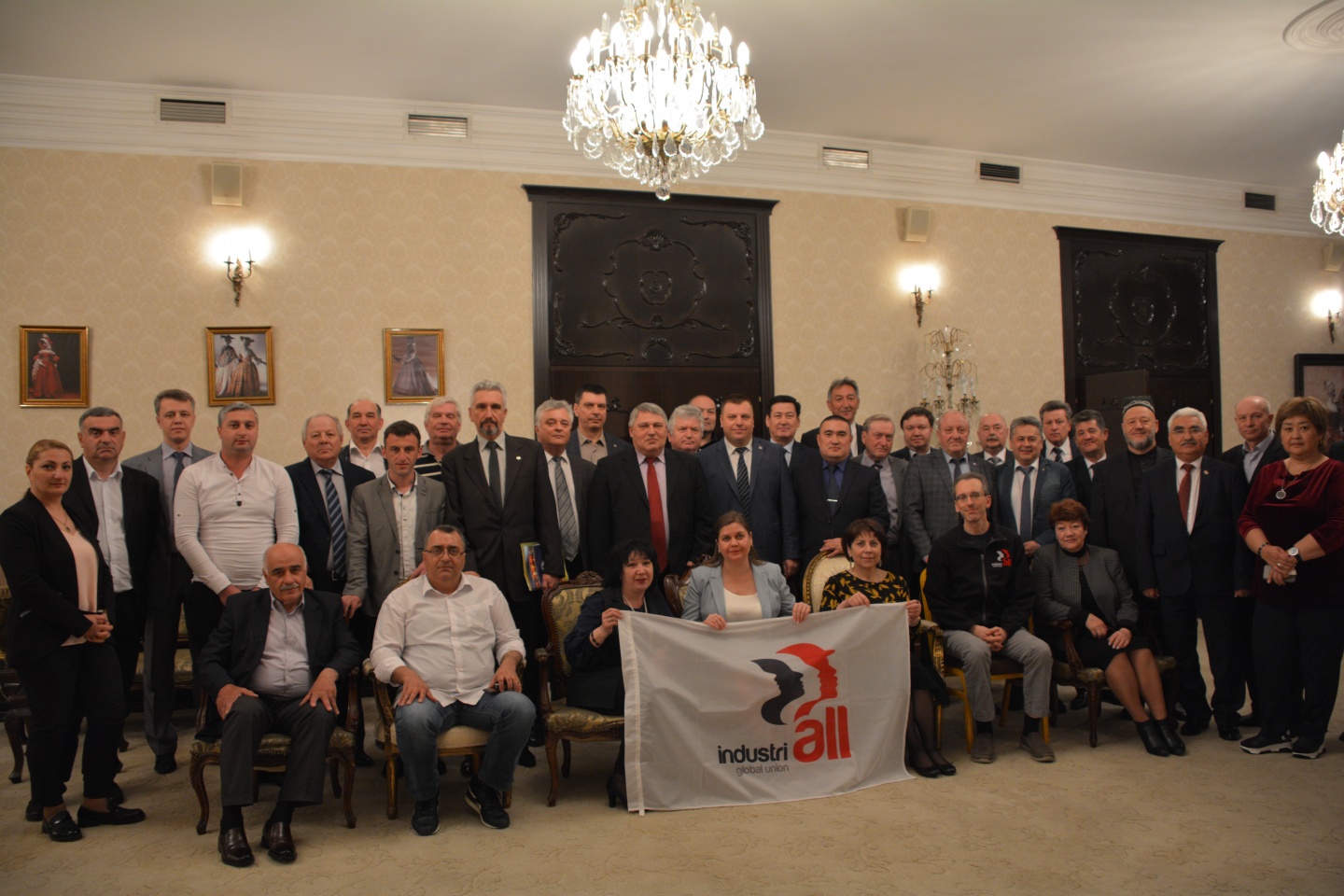20 April, 2018IndustriALL affiliates from CIS countries met on 17-18 April in Tbilisi, Georgia, to discuss union responses to trends and challenges in the base metals sector.
Challenges include global overcapacity, digitalization, and repression of unions by governments and companies. Presently, the share of the CIS region in global steel production is 6,3 per cent.
Participants noted that the U.S. government’s recent decisions on tariffs on steel and aluminium imports was a major challenge, since no CIS countries have been exempted from the tariffs.
Alexey Bezymyannykh of Miners' & Metallurgical Workers' Union of Russia noted the absence of foreign multinational corporations in Russia. The production volume in the industry has not grown for several years, which affects the terms of new collective agreements.
Asylbek Nuralin of the Trade Union of Workers of Mining and Metallurgical Industry of the Republic of Kazakhstan, Sergey Komyshev of the Metallurgical and Mining Industry Workers’ Union of Ukraine (PMGU), and Natalia Marinyuk of the trade union committee of PMGU at ArcelorMittal Kryvyi Rih emphasized the lack of effective social dialogue with ArcelorMittal. Miners in Kazakhstan only managed to achieve a wage increase of 30 per cent after the underground strike in December 2017.
Workers in Ukraine held a rally and sent an appeal to the ArcelorMittal Kryvyi Rih CEO signed by 12,000 people, demanding higher wages, safety improvements and improved social dialogue. Receiving no answer, they voted to begin a collective dispute. Workers insist on carrying out a detailed inspection of all company buildings that are in poor condition. Members of the union are under constant pressure from management, which conducts anti-social and anti-union policy.
Eldar Tadzhibaev of the Mining and Metallurgy Trade Union of Kyrgyzstan spoke about the trade union discount programme, an effective tool for organizing in worsening environment. 150 different companies provide discounts to union members. The programme resulted in the creation of three new unions and about 4,000 new members.
IndustriALL affiliates in Kyrgyzstan and Tajikistan ensure that the chair of trade union committees is approved by the union central committee. This prevents employer's representatives from being elected as chair, which undermines the union from within.
Tamaz Dolaberidze of the Trade Union of Metallurgy, Mining and Chemical Industry Workers of Georgia noted the problem of declining membership. In 2017, the trade union at Rustavi Azot was destroyed. In 2014, the mining company Rich Minerals Group undermined the union of 1,500 members. The main reason is that the union in Georgia is expected to take militant action, which does not always bring results.
Participants emphasized the importance of Industry 4.0 and suggested its inclusion in the agenda of each trade union event. Authorities and companies must create new vacancies and retrain people, so that they are not left without a job due to robotization. Trade unions should conduct an information campaign to encourage the authorities and the management to take urgent measures and trade union members to get new skills.
Summing up the conference, IndustriALL director for base metals Adam Lee noted,
“Base metals unions in the CIS have a long tradition of collaboration at the regional level. We applaud them for this and will continue to support their efforts to confront the many challenges they face in the sector.”








